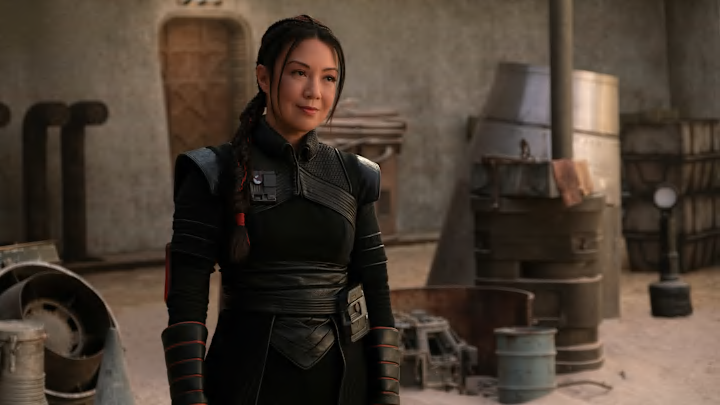Everyone feels stuck at some point in their lives. That's what made Luke Skywalker's gaze into Tatooine's twin suns in 1977 so relatable to the masses. Even Ming-Na Wen (The Mandalorian, The Book of Boba Fett) felt seen in that moment -- and she didn't have a lot in common with the white, blond teenage boy from the desert.
In a recent interview, the actor shared her personal connection to Star Wars and why The Mandalorian meant so much to her. Everything changed when A New Hope transported her from her Pittsburgh suburb to a galaxy far, far away.
"When I saw that movie, and Luke Skywalker is looking at the binary sunset," she said, "wishing and wondering what his life, what his potential, what anything is and will he ever have it -- or will he be stuck on this desert planet -- that is how I felt in Pittsburgh. Will I ever be able to reach the stars?"
Wen didn't grow up around a lot of other Chinese families, and she felt stuck and hungry for adventure. Science fiction movies and TV shows are so often filled with the kind of diverse, interesting settings so many of us long to be part of. She felt especially drawn to the genre, and that's why her roles in Marvel television and, eventually, in Star Wars were so life-changing. She didn't just want to be in Star Wars. She wanted to fulfill her dream of going beyond where she came from toward grand adventures. And that dream continues to come true for her even now
When we try to highlight the importance of everyone having the right to feel seen in Star Wars, this is what we mean. Everyone should be able to watch these movies and shows, or read these books and comics, and feel like they could have adventures just as exciting. Not just that anyone could -- but that they, specifically, could. Ming-Na Wen had to settle for relating to a white guy, but imagine how many of the kids watching The Mandalorian must have felt when they saw her on their screens -- someone who looked like them. It must have finally clicked -- they belonged in Star Wars, too.
They mattered, too.
